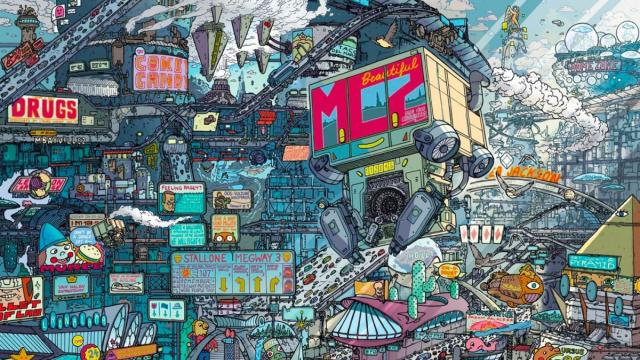
The title says it all: Corporations Are Not People. And Jeff Clements is in a position to know. During his tenure at the Massachusetts Attorney General's office, Clements was involved in a number of cases that saw corporations eager to gain all the rights of a person without holding the responsibility of a person.
Clements highlights one such case in his new book, involving a cigarette company.
“The law that we worked on was intended to stop the kind of targeting practices they were doing around middle schools and playgrounds,” Clements explains. “Literally, part of their marketing included how to addict middle school kids, young teenagers.”
In a trend that is now familiar in what Clements refers to as the “Second Gilded Age,” the law was struck down by the Supreme Court, suggesting that “the free speech rights of the cigarette corporation had been violated by limiting their advertising around school yards.”
Anyone with a conscience knows that this feels wrong. Courts, of course, don't run on feelings. But here's why that ruling, and others like it, are wrong both legally and logically.
“The Massachusetts law regulated corporate conduct, not speech,” Clements points out. “It curtails the youth-targeting strategies... sales might drop, but how does that create less freedom of speech for anyone? Any human being who had something to say about cigarettes and youth smoking remained free to say or write whatever that person wanted.”
In the same vein, let's say someone actually wanted to profess their love for cigarettes outside a middle school. In outlining the absurdity of the ruling, and the idea of corporate speech, Clements compares cigarette ads to the hypothetical person standing outside a school urging young kids to smoke.
“Other people would talk with the miscreant and ask him or her to consider whether that was a decent thing to do. The creep might respond, and debate would ensue. At some point, the cigarette enthusiast would get tired and move along... [and] the debate might continue the next day, or in writing, interviews, meetings or wherever people wanted to talk, listen and debate,” he says.
This is free speech. A cigarette ad is not.
“Try talking or debating with Joe Camel,” Clements adds. “It doesn't work. It doesn't work because Joe Camel and the corporation that spawned him are not people. Corporations never get tired, and they never move along until the money stops or the law steps in. Corporations do not speak.”
This is the cornerstone of Clements's book: common sense blended with first-hand experience and pointed research. It's a simple comment on what has become a complex issue. Still, the logic remains simple and straightforward: corporations aren't people just as imaginary corporate characters are not people. The fact that there is even a debate on the question shows the pervasive and insidious effect of corporate power on our daily lives.
But the rise of corporate government is something that has been going on long before Citizens United, something Clements points out with historical notations like the 1971 Powell Memo, which urged corporations to take up arms against the regulatory enemies of a free enterprise system.
The memo is a veritable corporate call to action as it encourages corporations to unite against the “intellectual community waging ideological warfare against the enterprise system and the values of western society.” It even outlines “What can be done about the Campus,” providing a checklist of ways to infuse higher education with corporate and business values that Powell felt were destroyed in the whirlwind of the 1960s.
Powell made sure to trample Ralph Nader for, astonishingly, wanting corporate executives jailed for “defrauding the consumer.” Meanwhile, he called on the Chamber of Commerce to step up and protect corporations from the ills of a restive, leftist society.
Following the memo's release, corporate governance slowly but steadily escalated. While Clements doesn't give Powell complete credit for shifting our country towards oligarchy, he believes his memo played a large role in “reviving that kind of thinking that you saw with Bancroft Davis, in the last gilded age, that corporations are in fact people.” (Bancroft Davis was the court reporter who, in the case of Santa Clara County v. Southern Pacific Railroad, wrote in the headnote of a court summary, “Corporations are persons...”
Clements notes that the rise of corporate power paralleled a rise in the people's reaction to that power. Indeed, unlike many books that leave you only with depressing facts, stacking them up around you like an insurmountable wall, Clements stacks – then offers up a ladder.
Using his experience as an activist, he outlines several different “portals”: ways for people to engage in the movement to take our country back from monied interests. This light-at-the-end-of-the-tunnel bookend echoes Clements's own experiences back in 2009, when he took his first official step toward combating corporate corruption.
Clements left the Massachusetts Attorney General's office and planned to write a law review on the Citizens United case, which was still under debate at the time in the Supreme Court. Instead, he wrote what's called an amicus brief, “a friend of the court brief,” and filed it with the Supreme Court. In other words, he sent the Supreme Court a direct letter.
“I argued what hadn't been adequately argued up to that point because it was assumed that it didn't need to be argued: that corporations don't have human rights under the constitution,” Clements explains.
After Citizens United passed, Clements felt he couldn't be content with a filed amicus brief and a career in private practice law. “I felt that I couldn't just leave it at that, that democracy is really on the line, that the country is on the line," he says.
"I don't think it's an exaggeration to say that humanity is on the line.”
So, along with friend and fellow lawyer, John Bonifaz, Clements founded Free Speech for People, an organization focused on regulating corporate power and shifting control of the government back to the people.
Clements's recently published book is a continuation of that fight. It is the push to educate but also engage – to offer knowledge and context with a "how-to-take-back-your-country" pamphlet shoved inside.
It is the anger one feels at reading a passage like, “In response to questions about safety, Monsanto's spokesperson says, 'Monsanto should not have to vouchsafe the safety of biotech food. Our interest is in selling as much of it as possible.'” It is the twisted awe at reading, “According to...the legal brief, 'Corporations have the same rights to remain silent as individuals'... the people of Vermont had caused a 'wrong' to the industrial dairy manufacturers' 'constitutional right not to speak.'”
It is then the inspiration at reading, “Americans are once again coming together into a wide array of groups to meet the need of an overdue cultural and political debate. That shows the growing energy and commitment of so many people to overturn Citizens United and fix our country.”
It is also the drive to go to, and contact, the impressive list of more than 30 organizations detailed in the “Do Something” section of the book, organized into the series of paths we must take to affect change: establishing a 28th amendment, restoring fair courts and legal advocacy, instituting election reform, and enforcing corporate accountability.
The paths are not meant to be daunting but to show an example of the variety of ways we can work to push the movement forward. Just as there is not one single problem within our government, there is not one single solution.
“We have to do it all at the same time,” Clements says. “But it doesn't mean everybody has to do it all.”
The last pages of the book amplify this message: they are an antidote to the hectoring and time-wasting my-way-vs.-your-way, this-cause-vs.-that-cause conflicts that have paralyzed popular democratic movements for generations. Clements instead offers a vision where we can all work in our own way, on a myriad of paths, while sharing in the overall goal of a government of, for and by the people.
Our history proves that when faced with injustices we're able to rise up to defend our rights and freedoms, and to win out against corruption and greed. The paradigm that things are terrible and that "that's just how it is" – or that corporate control is “just globalization” – shows not only a lack of understanding of our own past, but a pre-emptive surrender to powers that we, the people, can defeat now and in the future.
“I refuse to be rendered useless by giving into cynicism and hopelessness,” says Clements, whose activism and writing do just the opposite. “Corporations are not People” is a history, a current events update, a call to action, and lady liberty's self-help book all rolled into one.
Go here to buy the new edition of Corporations Are Not People, which includes a foreword by Bill Moyers and up-to-date resources and news. 100% of author royalties are donated to non-partisan organizations working to renew democracy and government of, by and for the people. You can also find the book on Amazon, at Barnes & Noble, through the publisher Berrett-Koehler, or wherever books are sold.
3 WAYS TO SHOW YOUR SUPPORT
- Log in to post comments














